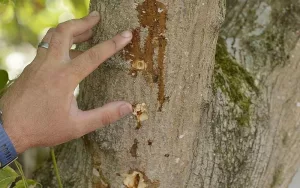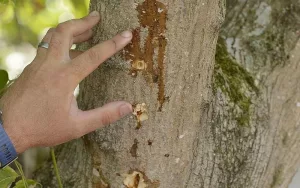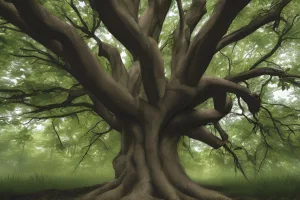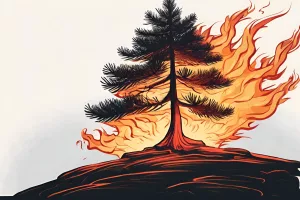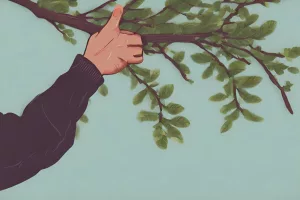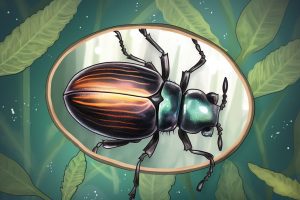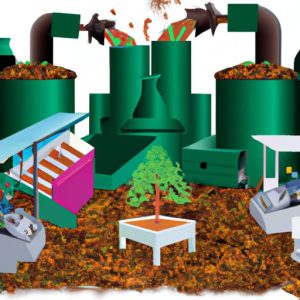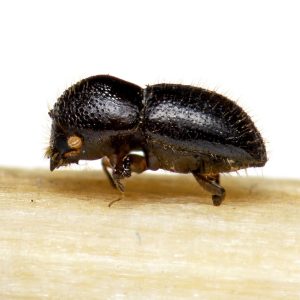The Polyphagous Shot Hole Borer (PSHB) is a dangerous beetle invading Cape Town’s trees, especially weeping willows and English oaks. This tiny pest can cause big harm, leading to the loss of urban forests and the animals that live in them. In Oakdale, the first sighting has sparked worry among locals, urging everyone to check their trees for signs of this beetle. Leaders are calling for community action and teamwork to inspect trees and stop the spread of this threat, making it clear that every little effort counts in protecting Cape Town’s green spaces and natural beauty.
The Polyphagous Shot Hole Borer beetle is an invasive species threatening Cape Town’s urban forest, and traditional pesticides are ineffective against it. Chipping infected trees onsite is crucial to preventing its spread. The City of Cape Town has initiated training sessions to raise awareness and promote ecofriendly gardening. Residents are urged to report infestations and take necessary steps to prevent the beetle from spreading, as it poses a significant risk to the city’s urban forest.
The Polyphagous Shot Hole Borer Beetle Infestation, an invasive species, has spread beyond its traditional hotspots in Cape Town, with the first sighting reported in Penhill, Eerste River. The beetle poses a significant threat to the local flora, and urgent action is required to contain its spread. The City of Cape Town is urging residents to report any sightings and participate in free training sessions to handle the situation responsibly. The gravity of the threat highlights the need for caution and preservation of Cape Town’s urban forests.
The National Status of Biological Invasives and their Management report emphasizes the urgent need to prevent, detect, and control invasive species in South Africa. This threat not only harms biodiversity but also impacts various sectors of the economy, agriculture, water resources, and public health. South Africa has implemented an effective regulatory system to manage biological invasions and is a vanguard in invasion science. However, addressing biological invasions requires a united response from all sectors, and the report serves as a wakeup call to act decisively.
South Africa’s biodiversity is threatened by invasive species, which have been introduced into various ecosystems and have caused extensive damage to water assets, pastures, and native biodiversity. The introduction of 32 new alien species in the past decade has worsened the risks associated with wildfires and flooding, making it a monumental challenge that requires a concerted and cooperative effort from all stakeholders. The government has pledged over 1.5 billion Rand to tackle biological invasions, and NGOs have secured over 180 million Rand to control invasive species in water catchments around Cape Town. Nevertheless, the challenge ahead remains monumental and requires unity and collaboration from all stakeholders.
Cape Town is fighting the Polyphagous Shot Hole Borer beetle with a free education initiative. The program aims to educate businesses and residents on identifying and managing the beetle to mitigate the damage it inflicts on the city’s urban forest. The training covers infested tree identification, correct protocols for managing and transporting affected biomass, and responsible green waste transportation. Residents and businesses are encouraged to report sightings of the beetle and attend the free training sessions to maintain their gardens in a safe and ecofriendly manner.
The PSHB beetle outbreak has become a severe concern for residents of Cape Town as it continues to spread to different suburbs, including Rosebank and Wynberg. The beetle is an invasive species that can cause significant damage to trees, posing a threat to the local environment.
South Africa faces a severe social housing crisis, with many people living in inadequate and overcrowded conditions. **Dr. Abubakar Sadiq Mohammed**, a recent Ph.D. graduate from Stellenbosch University, has developed a solution to this problem. His innovative woodplastic composite material combines invasive Port Jackson trees with recycled lowgrade plastic waste to create affordable and sustainable housing.
Cape Town, known for its natural beauty and biodiversity, faces a significant threat to its urban forest. The Polyphagous Shot Hole Borer (PSHB), an invasive beetle from Southeast Asia, has been infesting trees in certain areas throughout the City. The beetle is known for its ability to rapidly invade a range of tree species, leading to branch dieback, gumming, and, ultimately, the host tree’s death. The PSHB is a global problem, and the City of Cape Town has responded with a list of recommended trees to help mitigate its impact.


